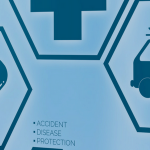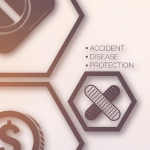FOR IMMEDIATE RELEASE
June 21, 2021
Contact: CMS Media Relations
CMS Media Inquiries
New Medicaid and CHIP Enrollment Snapshot Shows Almost 10 million Americans Enrolled in Coverage During the COVID-19 Public Health Emergency
Report Shows Record Medicaid Enrollment and Highlights the Program’s Importance in Preserving Coverage for Millions of Children and Adults Throughout the United States
The Centers for Medicare & Medicaid Services (CMS) released a new Enrollment Trends Snapshot report today showing a record high, over 80 million individuals have health coverage through Medicaid and the Children’s Health Insurance Program (CHIP). Nearly 9.9 million individuals, a 13.9% increase, enrolled in coverage between February 2020, the month before the public health emergency (PHE) was declared, and January 2021.
Among the 50 states and the District of Columbia, a total of 80,543,351 people were enrolled and receiving full benefits from the Medicaid and CHIP programs by the end of January 2021. In the 50 states that reported total Medicaid child and CHIP enrollment data for January 2021, over 38.3 million children were enrolled in Medicaid and CHIP combined, approximately 50% of the total Medicaid and CHIP enrollment. These numbers highlight the essential role the Medicaid and CHIP programs play in providing quality and needed coverage for millions of vulnerable children and adults. In fact, both programs serve as the largest single source of health coverage in the country.
“The Biden-Harris administration is using every lever to ensure any American needing access to quality health coverage receives it. Now more than ever, people need the peace of mind of knowing that they have health coverage,” said HHS Secretary Xavier Becerra. “This report reminds us what a critical program and rock Medicaid continues to be in giving tens of millions of children and adults access to care. This pandemic taught us that now more than ever, we must work to strengthen Medicaid and make it available whenever and wherever it’s needed using the unprecedented investments Congress provided.”
The increase in total Medicaid and CHIP enrollment is largely attributed to the impact of the COVID-19 PHE, in particular, enactment of section 6008 of the Families First Coronavirus Response Act (FFCRA). FFCRA provides states with a temporary 6.2% payment increase in Federal Medical Assistance Percentage (FMAP) funding. States qualify for this enhanced funding by adhering to the Maintenance of Effort requirement, which ensures eligible people enrolled in Medicaid stay enrolled and covered during the PHE.
“Medicaid and CHIP serve as a much-needed lifeline for millions of people throughout this country. The increase we are seeing is exactly how Medicaid works: the program steps in to support people and their families when times are tough,” said CMS Administrator Chiquita Brooks-LaSure. “For the parents that may have lost a job or had another life change during the pandemic, having access to coverage for themselves and their kids is life-changing. CMS is committed to ensuring our nation’s marginalized communities and low-income families have the coverage they need.”
To assist states and territories in their response to the COVID-19 PHE, CMS developed numerous strategies to support Medicaid and CHIP programs in times of crisis, including granting states more flexibility in their Medicaid and CHIP operations. Today’s data release also reflects a range of indicators related to key application, eligibility, and enrollment processes from within state Medicaid and CHIP agencies.
The Snapshot is a product of the Centers for Medicare and Medicaid CHIP Services (CMCS) Medicaid and CHIP Coverage Learning Collaborative (MACLC), which monitors Medicaid and CHIP enrollment trends, primarily using the CMS Performance Indicator (PI) data reported to CMS by state Medicaid and CHIP agencies. PI data reflects key Medicaid and CHIP business processes- including applications, renewals, eligibility determinations, and enrollment.
The Enrollment Trends Snapshot, which is released monthly, is available here: https://www.medicaid.gov/medicaid/program-information/medicaid-chip-enrollment-data/medicaid-and-chip-enrollment-trend-snapshot/index.html
The complete dataset, including data from January 2021, is available on data.Medicaid.gov.














